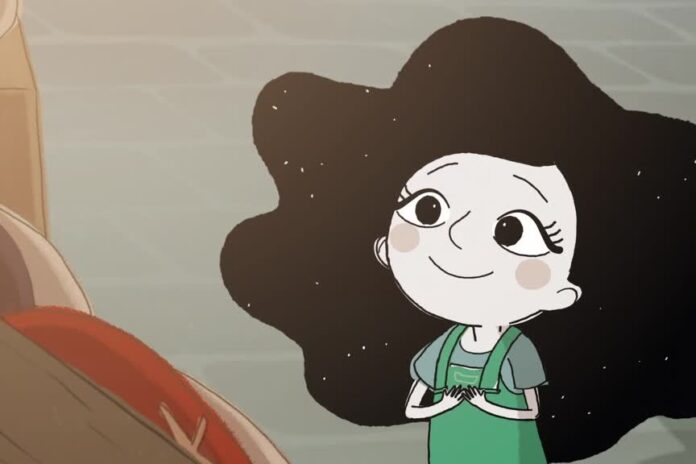At the age of 6, Dounia, a little girl from the city of Aleppo, Syria, sees her house destroyed. She then leaves with her grandmother and other people in the direction of Europe. Helped by nigella seeds that she takes with her, she hopes to overcome the obstacles that will allow her to find her new home.
Despite the difficult subject that Marya Zarif and André Kadi decided to tackle in Dounia and the Princess of Aleppo, all is not dark in this feature film. Imbued with magic, the story of Dounia – whose first name means “the world” in Arabic – takes the form of a children’s story, but without forgetting to take a human look at the war in Syria.
It’s a fairly classic children’s story, in which the protagonist faces problems and must find solutions. Throughout his adventures, we become familiar with Syrian customs, from the making of gazelle horns to the affection of spices. As Dounia says at the beginning of the film, “we like to eat a lot in Aleppo”!
Dounia’s mother died in childbirth. His father was arrested by regime militiamen. Finding herself alone with her grandparents, Dounia has to leave Aleppo to escape the bombardments. The three companions with touching complicity will be accompanied by a host of colorful characters. A Christian mother and her daughter, a grocer, his wife and their baby and Joan, a troubadour-like oud player, who will brighten up the quest with his traditional stringed instrument.
In search of a new home, Dounia has taken nigella seeds (baraké, in Arabic) with magical properties and travels under the protection of the Princess of Aleppo, double of her deceased mother who appears to her in heaven when she needs to be guided. After various wanderings (Turkish border, port of Izmir, Greece, refugee camp on the Macedonian border and Budapest), Dounia’s wish was finally granted and she was welcomed with her grandparents by a couple from Quebec who build a house. The encounter between these two realities is moving and will make the public aware of the importance of recognizing their privileges.
It is a poetic quest straddling La vita è bella and Persepolis, nourished by the powerful imagination of a little girl faced with the ordinary horror of a country at war. Dounia and the Princess of Aleppo can be enjoyed by adults as well as the youngest, because it is above all a story full of humanity.








